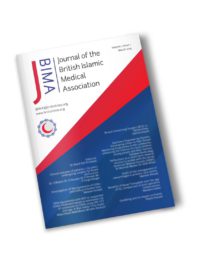
AssalamoAlaikom
The progress we have made in fighting the Covid-19 pandemic this year has been extraordinary, and it is good to see the vaccine working effectively. We’re not out of the woods yet however as various strains emerge and Covid has not yet been eliminated. Having said that, we need to take a step back and ask ourselves what the world we live in is like, and what prospects does it hold for the future. Beyond the difficulties of Covid, there is a staggering level of death and destruction around the world for a variety of reasons, and as medical professionals, it is our duty to help the sick and needy. And whilst we cannot help everyone everywhere, there are ways for us to work together to assist those with no
access to medical care.
Disasters in the Muslim world are ongoing. The latest news we are hearing in Afghanistan means that there will be an influx of Afghan refugees fleeing there sooner rather than later. But in the same way as other conflict ridden states like Syria, Yemen, Palestine, Somalia and Myanmar, not all the people there can flee. Those that cannot leave and therefore cannot access the healthcare in a more stable country have to be helped. It is encouraging to see that there are a number of NGOs who work closely with medical Islamic organisations to coordinate relief efforts on the ground. In the short term, pop-up clinics are formed and surgeons operate in makeshift field hospitals. These are generally in response to disasters that are ongoing or have just struck (an earthquake or Tsunami for example).
But in the long term there are genuine opportunities for medical relief efforts to be improved, and healthcare professionals should be at the forefront of these efforts. Doctors and NGOs should be advocating for capacity building and long term public health campaigns so even if disaster strikes, the mechanisms are in place for the public to be educated about issues such as vaccination for example. Disaster planning has to be professionalised, and healthcare professionals need to ensure that their
work with medical NGOs is better coordinated too.
Doctors generally have good experience when working with others in their Multi-Disciplinary Team meetings; this should be replicated when working in the context of medical relief.
There is a real need for healthcare professionals to be proactive and work with said NGOs to advocate governments on the importance of stable healthcare systems and public health awareness and ensure that the latter is a staple in schools and universities too so that the next generation of citizens understands the importance of so many issues that we in the West may take for granted.
The lack of structure and opportunity for doctors to contribute to relief efforts has at times resulted in tragedy, with the example of the late Dr Abbas Khan in 2012, may Allah rest his soul, being one. He was detained, tortured and ultimately killed by the Syrian regime, though he had travelled to Syria on humanitarian grounds. Dr David Nott had better luck, but escaped by the skin of his teeth on more than one occasion in Aleppo which convinced him not to go back.
We at BIMA should be using our man power to help other organisations providing relief efforts on the ground. And whilst technology will never be a valid substitute for meeting patients face to face, we may not even need to be physically present in a disaster zone to be of benefit. Virtual consultations with refugees and online teaching for local doctors are innovative ways for us to provide help for those who need it. We should embrace these creative solutions whilst remembering that in many cases, it’s the luck of where we were born that has resulted in us being in a privileged position and living in a stable area of the world. We must be thankful to Allah for that.
Wassalam
Dr Sharif Al-Ghazal,
Editor-in-Chief

